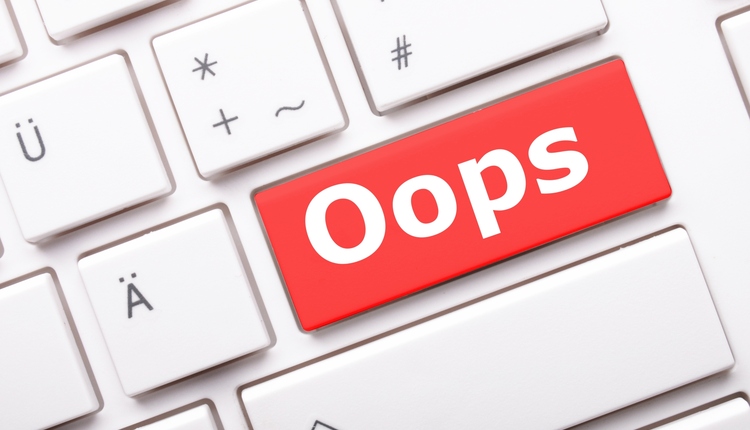![Mike_Porter_70x100_1[1]_5 Mike_Porter_70x100_1[1]_5](https://cms-static.wehaacdn.com/mailingsystemstechnology-com/images/Mike_Porter_70x100_1-1-_5.195.0.0.jpg)
I've been getting more comfortable with the unsubscribe button lately. It seems that every organization to whom I've ever provided my email address has stepped up their email marketing efforts over the last several months. My inbox fills up much more rapidly now than it did a year ago. Frankly, it's just gotten to be too much to handle. There aren't enough hours in the day to read all those messages and still get work done. The situation called for a dramatic resolution.
Most of the messages that actually end up in my inbox are not really spam. I have filters to take care of that junk. No, my over-stuffed inbox is populated with mail from companies or organizations with whom I've had a relationship, or at least an interest, at some point in time. I used to feel guilty about not reading their material. As a publisher of newsletters myself, I know how important it is to these companies that their audience is hearing from them. I think I was keeping them around as a sympathetic gesture.
But I got over it. Some of these emails are evil, time-sucking baubles designed to lure me away from what I should be doing and into endlessly linked web sites, videos, and downloadable PDF's. So goodbye daily emails from car rental companies I never use, so long to hotel chains I only stayed with once. And to you, the four office supply stores that send me email twice a week, it's been nice knowing you. If I need something I know where to find you. I'll visit your web site when I run out of toner - promise!
It's not just retail establishments that didn't make the cut. Several well-meaning organizations also became victims of my one-click unsubscribe crusade. It's not that I don't want to be educated and informed; I just won't make the time anymore to read twenty articles clipped from elsewhere and reposted in your newsletter unless it has a direct impact on my business. Sorry.
The messages that remain after this cleansing experience are important to me. They deliver good, original content that makes it worthwhile for me to open the emails every time they arrive. Mailers, if you can consistently provide fresh, relevant information that I can consume in a reasonably short period of time I will be a loyal follower.
Direct Mailers Get to Call More of the Shots
I do feel sorry for the advertisers who have put all their eggs into the email basket. If email is your only channel and you've disenfranchised your audience with over-mailing or generic messaging then it's going to be a lot harder to get them back. The trouble with single-channel communications is that once the link with the customer has been broken you have to start all over again to get their attention and gain their trust.
Direct mail, of course, has no unsubscribe button. Nor does my postal carrier stand in front of my mail box tossing out mail that's obviously not relevant to me. If someone sends me postal mail, I'm going to see it. And that's the way it ought to be unless I specifically tell a mailer otherwise. The mailers are the ones paying for the whole process. They have purchased the right to vie for my attention. I don't pay for access to a network, purchase interface devices, or invest in anything else to receive and read my postal mail. Therefore, I can't gripe too much about what gets delivered.
Some direct mail advertisers still have work to do when it comes to relevance. But they've got more opportunity than their emailing cousins to make the changes necessary to communicate with their audience in a meaningful way. With no easy way to be instantly removed from the mailing list, recipients will continue to accept the mail pieces into their homes until one of them connects. This is a huge advantage over email communications.
But that advantage can be wiped out if too many irresponsible mailers continue the spray and pray practices of the past. Sending untargeted mail to people who don't want it is not only wasteful financially and environmentally. It is fuel for groups who would like to make it as easy to unsubscribe from postal mail as it is to do so with email, by way of do-not-mail regulations.
Well-designed direct mail done intelligently has lots of advantages over email. Now is the time to make the most of them.
Mike Porter is an expert in Print and Mail operations and President of Print/Mail Consultants, an independent consulting firm that helps companies nationwide be more productive, adapt to change, and lower costs in their document operations. To read more ideas about customer communications, sign up for Mike's free newsletter at www.printmailconsultants.com or email him directly at mporter@printmailconsultants.com. If the newsletter doesn't deliver value for you, then unsubscribe. No hard feelings. Mike will understand.
Most of the messages that actually end up in my inbox are not really spam. I have filters to take care of that junk. No, my over-stuffed inbox is populated with mail from companies or organizations with whom I've had a relationship, or at least an interest, at some point in time. I used to feel guilty about not reading their material. As a publisher of newsletters myself, I know how important it is to these companies that their audience is hearing from them. I think I was keeping them around as a sympathetic gesture.
But I got over it. Some of these emails are evil, time-sucking baubles designed to lure me away from what I should be doing and into endlessly linked web sites, videos, and downloadable PDF's. So goodbye daily emails from car rental companies I never use, so long to hotel chains I only stayed with once. And to you, the four office supply stores that send me email twice a week, it's been nice knowing you. If I need something I know where to find you. I'll visit your web site when I run out of toner - promise!
It's not just retail establishments that didn't make the cut. Several well-meaning organizations also became victims of my one-click unsubscribe crusade. It's not that I don't want to be educated and informed; I just won't make the time anymore to read twenty articles clipped from elsewhere and reposted in your newsletter unless it has a direct impact on my business. Sorry.
The messages that remain after this cleansing experience are important to me. They deliver good, original content that makes it worthwhile for me to open the emails every time they arrive. Mailers, if you can consistently provide fresh, relevant information that I can consume in a reasonably short period of time I will be a loyal follower.
Direct Mailers Get to Call More of the Shots
I do feel sorry for the advertisers who have put all their eggs into the email basket. If email is your only channel and you've disenfranchised your audience with over-mailing or generic messaging then it's going to be a lot harder to get them back. The trouble with single-channel communications is that once the link with the customer has been broken you have to start all over again to get their attention and gain their trust.
Direct mail, of course, has no unsubscribe button. Nor does my postal carrier stand in front of my mail box tossing out mail that's obviously not relevant to me. If someone sends me postal mail, I'm going to see it. And that's the way it ought to be unless I specifically tell a mailer otherwise. The mailers are the ones paying for the whole process. They have purchased the right to vie for my attention. I don't pay for access to a network, purchase interface devices, or invest in anything else to receive and read my postal mail. Therefore, I can't gripe too much about what gets delivered.
Some direct mail advertisers still have work to do when it comes to relevance. But they've got more opportunity than their emailing cousins to make the changes necessary to communicate with their audience in a meaningful way. With no easy way to be instantly removed from the mailing list, recipients will continue to accept the mail pieces into their homes until one of them connects. This is a huge advantage over email communications.
But that advantage can be wiped out if too many irresponsible mailers continue the spray and pray practices of the past. Sending untargeted mail to people who don't want it is not only wasteful financially and environmentally. It is fuel for groups who would like to make it as easy to unsubscribe from postal mail as it is to do so with email, by way of do-not-mail regulations.
Well-designed direct mail done intelligently has lots of advantages over email. Now is the time to make the most of them.
Mike Porter is an expert in Print and Mail operations and President of Print/Mail Consultants, an independent consulting firm that helps companies nationwide be more productive, adapt to change, and lower costs in their document operations. To read more ideas about customer communications, sign up for Mike's free newsletter at www.printmailconsultants.com or email him directly at mporter@printmailconsultants.com. If the newsletter doesn't deliver value for you, then unsubscribe. No hard feelings. Mike will understand.













